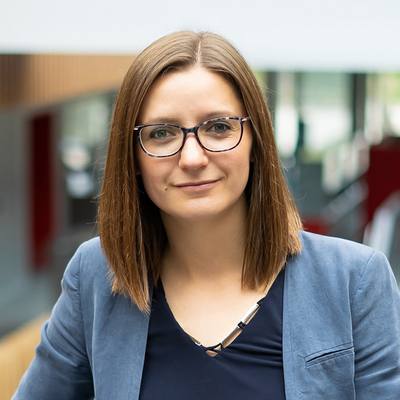
Dr Gosia Trynka
Science Director at Open Targets and Group Leader at Sanger Institute
I am a Group Leader at the Wellcome Sanger Institute and the Science Director of Open Targets. My research focuses on understanding how genetic variation affects immune cell function and contributes to the development of human disease. To do this, my team uses a combination of single-cell transcriptomics, CRISPR perturbation screens, immune phenotyping and high-content imaging to explore how genetic variants shape immune cell states and functions.
In my role at Open Targets, I help shape the consortium’s scientific strategy at the interface of human genetics and drug discovery. I work closely with academic and industry partners to design collaborative projects that harness large-scale genomic data and systematic perturbations to support target identification and prioritisation.
I completed my PhD at the University of Groningen, where I studied the genetic and molecular basis of coeliac disease. My work contributed to the discovery of tens of novel risk loci for immune disease. During my postdoctoral work at Harvard Medical School and the Broad Institute, I led studies that integrated GWAS signals with chromatin annotations to pinpoint disease-relevant cell types. This work helped establish T cells as central players in many immune-mediated diseases.
A key motivation for establishing my research group was the recognition that, despite the tremendous success of genome-wide association studies in mapping thousands of variants associated with disease risk, a fundamental gap remains in linking these variants to biological function. Without addressing this gap, we cannot fully understand the causal mechanisms underpinning disease, and our translational efforts to advance new therapies risk being inefficient or misdirected. My research aims to bridge this variant-to-function divide through systematic, context-aware functional genomics.
Since starting my group at the Sanger Institute, I have built a multidisciplinary programme to study how genetic variants act in specific cellular contexts, particularly in T cells and their interactions with other cells. We integrate genomic perturbations with single-cell, immunophenotyping and imaging readouts to uncover the molecular programs influenced by genetic variation and disease-linked genes.
To capture phenotypes that extend beyond transcriptional changes, we use a high-content imaging platform. This enables us to systematically measure morphological and functional phenotypes that are not accessible through transcriptomics alone, offering a complementary view of how genetic perturbations affect immune cell function.
I also co-lead Project JAGUAR, a large-scale collaborative initiative across Latin America aimed at addressing the severe underrepresentation of Latin American populations in genetic and functional genomics studies. This lack of representation limits our understanding of human biology and hinders progress in identifying disease mechanisms and developing more effective, inclusive treatments. JAGUAR is generating single-cell immune genomic profiles from individuals across diverse ancestries to investigate how genetic variants regulate immune cell function in different populations and contexts.
I firmly believe that interdisciplinary approaches are crucial for gaining meaningful insights into biological processes. Equally important to me is fostering a supportive and collaborative research environment. I am proud and fortunate to lead a team of talented scientists who work closely together and with a broad network of collaborators. Through the Open Targets programme, we have the opportunity to engage directly with pharmaceutical partners. These collaborations help us stay focused on translational goals and enable the findings from our research to extend beyond publication, informing target identification and ultimately influencing drug discovery pipelines in a tangible way.
My timeline
Science Director of Open Targets
Experimental Science Director of Open Targets
Group Leader at the Sanger Institute
Postdoctoral fellow at Brigham and Women's Hospital, Harvard Medical School and the Broad Institute
PhD cum laude, Groningen University, Groningen, the Netherlands
MSc in Biotechnology, Biophysics and Biochemistry, Jagiellonian University, Krakow, Poland